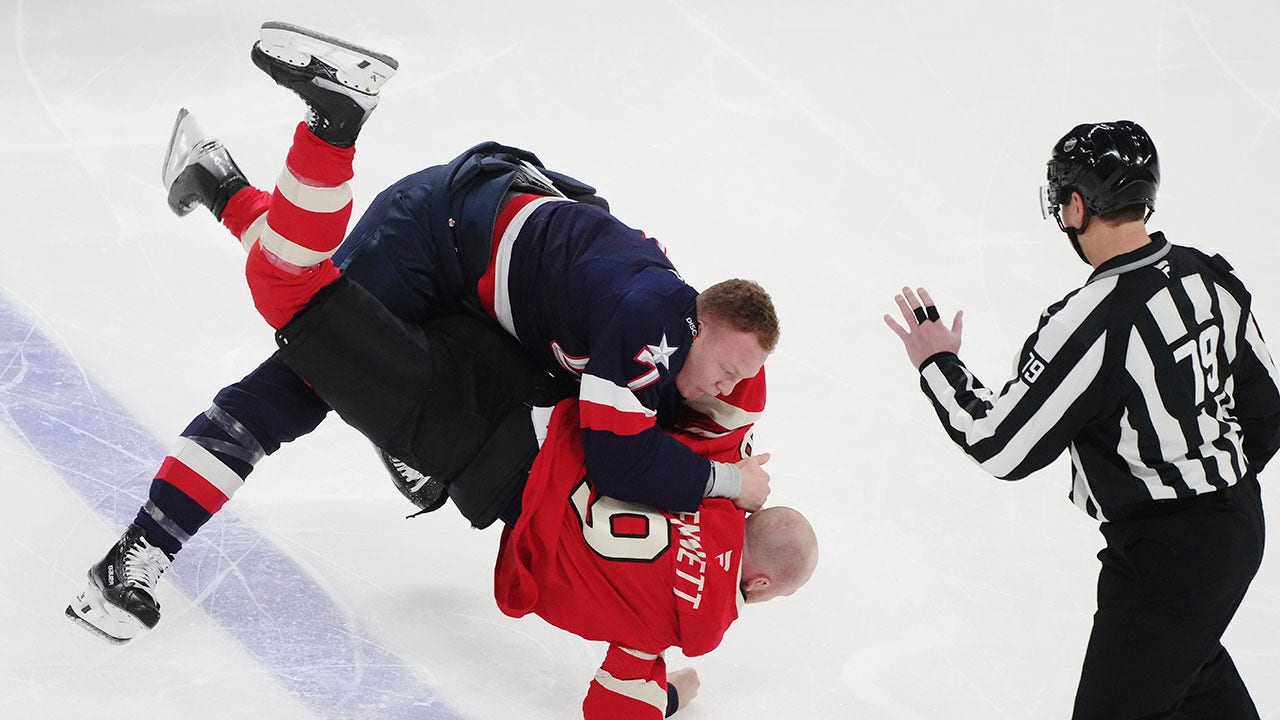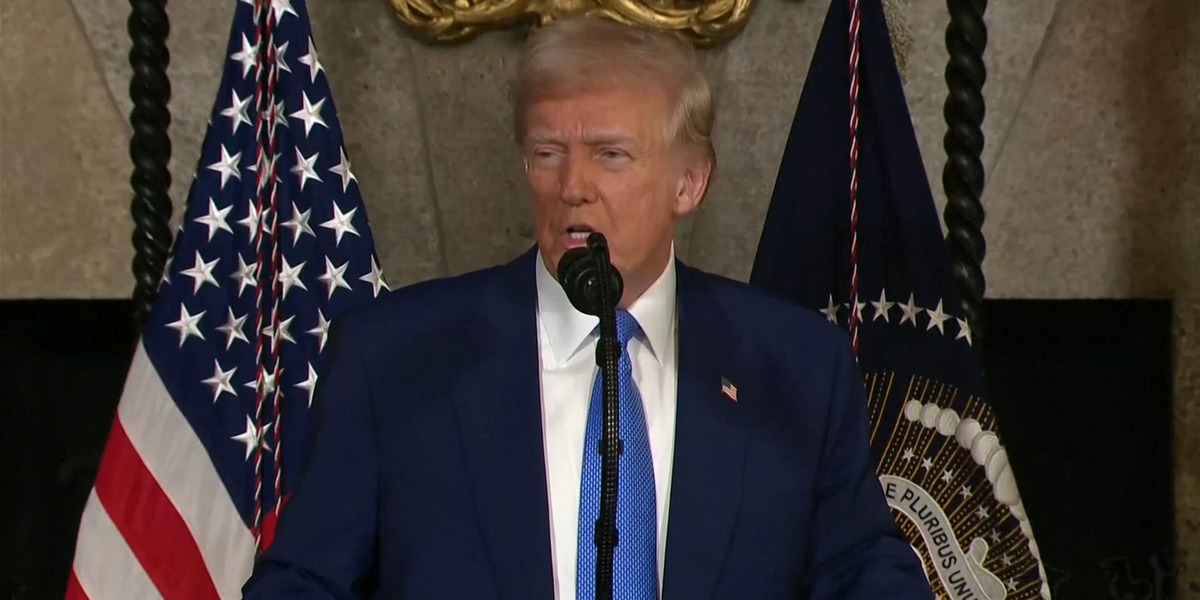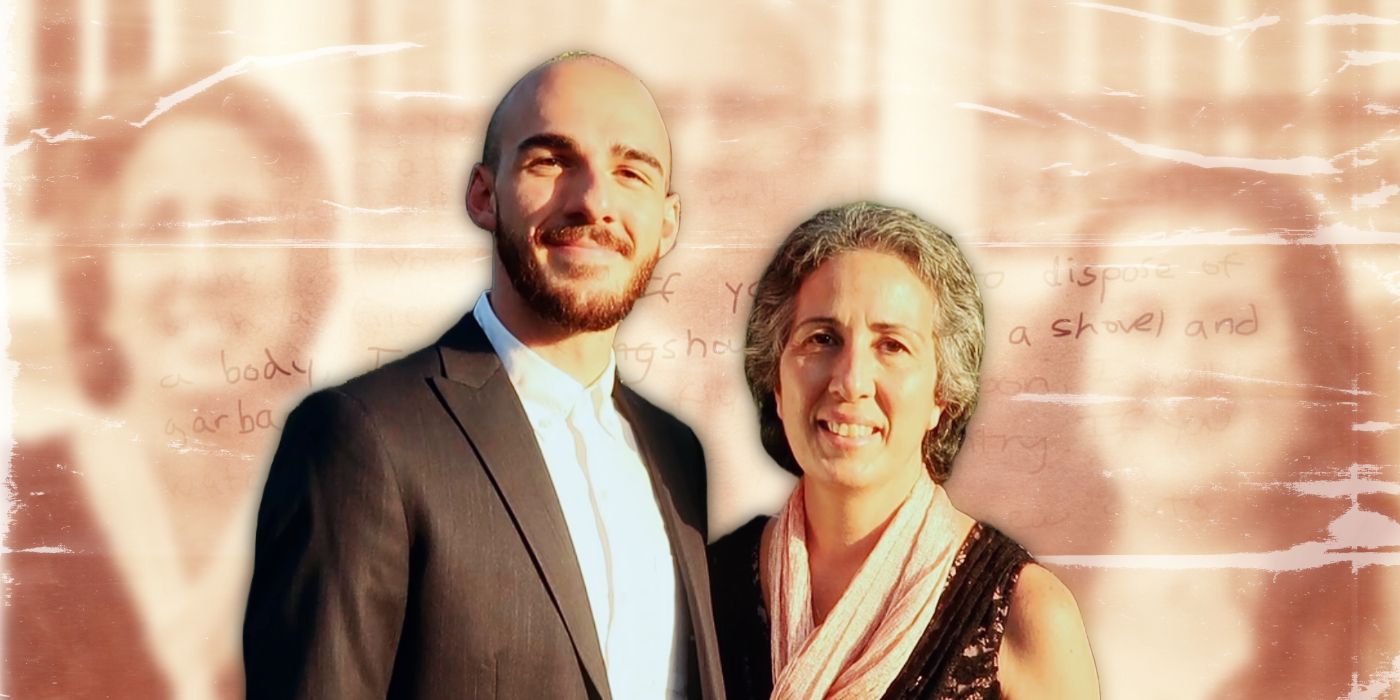Native American activist Leonard Peltier released from US prison
Supporters celebrate the release of an Indigenous activist imprisoned for killing of FBI agents after a flawed trial.

Native American activist Leonard Peltier has left a Florida prison after nearly five decades behind bars, following a commutation from former United States President Joe Biden.
On Tuesday morning, Peltier walked out of a federal detention centre in Coleman, Florida, and was taken away by an SUV. He did not speak as he exited the prison.
list of 3 items
list 1 of 3
‘Last chance’: Activist Leonard Peltier’s family reflects on life in prison
list 2 of 3
Biden commutes most federal death sentences before Trump term
list 3 of 3
Biden commutes nearly 1,500 sentences, pardons 39 people
end of list
Peltier, 80, had become a global symbol for Indigenous rights after his 1977 conviction for murder, with groups like Amnesty International and supporters like actor Robert Redford calling for his freedom.
A member of the Turtle Mountain Band of Chippewa Indians, Peltier has long maintained his innocence, and advocates argue his trial was botched.
“Today I am finally free! They may have imprisoned me but they never took my spirit!” Peltier said in a statement, released by the NDN Collective, an activist group. “I look forward to seeing my friends, my family, and my community. It’s a good day today.”
He will return home to Turtle Mountain Reservation in Belcourt, North Dakota, where a homecoming celebration is planned on Wednesday.
Advertisement
“We’re so excited for this moment,” Jenipher Jones, one of Peltier’s lawyers, told The Associated Press. “He is in good spirits. He has the soul of a warrior.”
American Indian Movement member Leonard Peltier was serving two life sentences for the 1975 murder of two FBI agents [File: Cliff Schiappa/AP Photo]
Peltier was convicted in the 1975 killing of two agents from the Federal Bureau of Investigation (FBI) at the Pine Ridge Indian Reservation in South Dakota.
The FBI agents, Jack Coler and Ronald Williams, had been at the reservation to serve an arrest warrant.
But upon arriving at the Jumping Bull Ranch, they entered into a shootout with members of the American Indian Movement (AIM), including Peltier. As many as 30 people were present at the shootout.
Several AIM members were arrested in the aftermath and charged with the agents’ murder. Two, Robert Robideau and Darrelle Butler, were tried but ultimately acquitted on the grounds of self-defence.
Peltier fled to Canada but was ultimately extradited for trial in the US.
While Peltier has acknowledged he did fire his gun in self-defence, he has repeatedly denied shooting and killing the agents. Prosecutors have alleged the agents were shot in the head at point-blank range; Peltier has said he was not near them at the time of their deaths.
Supporters have also argued that the 1977 trial against Peltier was deeply flawed, citing suppressed evidence.
In addition, a woman who testified that she had seen Peltier shoot the agents later stated that she had been coerced into doing so and rescinded her testimony.
Advertisement
During the period when the shooting took place, the FBI had carried out efforts to harass and surveil Native American activist organisations, along with other civil rights groups across the country.
For Peltier’s supporters, his nearly half-century-long incarceration is a symbol of a double standard in the justice system.
Members of his family have also called for a compassionate release on health grounds: Peltier is now partly blind and suffers from health issues such as diabetes and heart trouble.
“I know he won’t make it to his next parole with the conditions he’s living under. He won’t make it that long,” Pamela Bravo, one of Peltier’s relatives, told Al Jazeera last year.
But the prospect of releasing Peltier has long been divisive, with FBI and law enforcement groups adamantly opposing his freedom.
Ahead of a parole hearing last year, then-FBI director Christopher Wray called his potential release “an affront to the rule of law”.
“Peltier has never accepted responsibility or shown remorse,” Wray wrote. “He is wholly unfit for parole.”
Wray reiterated those sentiments in a personal letter to President Biden, calling Peltier a “remorseless killer”.
But other members of Biden’s administration, including Interior Secretary Deb Haaland, a member of the Laguna Pueblo tribe, pushed for Peltier’s freedom.
There was also international pressure: Figures such as the Dalai Lama and Pope Francis have joined calls for his release.
Ultimately, in the final hours of his presidency on January 20, Biden commuted Peltier’s sentence.
Advertisement
A commutation, however, is no pardon, and Peltier will continue to live under house arrest.
“We never thought he would get out,” Ray St Clair, a member of the White Earth Band of the Minnesota Chippewa Tribe, said shortly before Peltier’s release. “It shows you should never give up hope. We can take this repairing the damage that was done. This is a start.”















)






